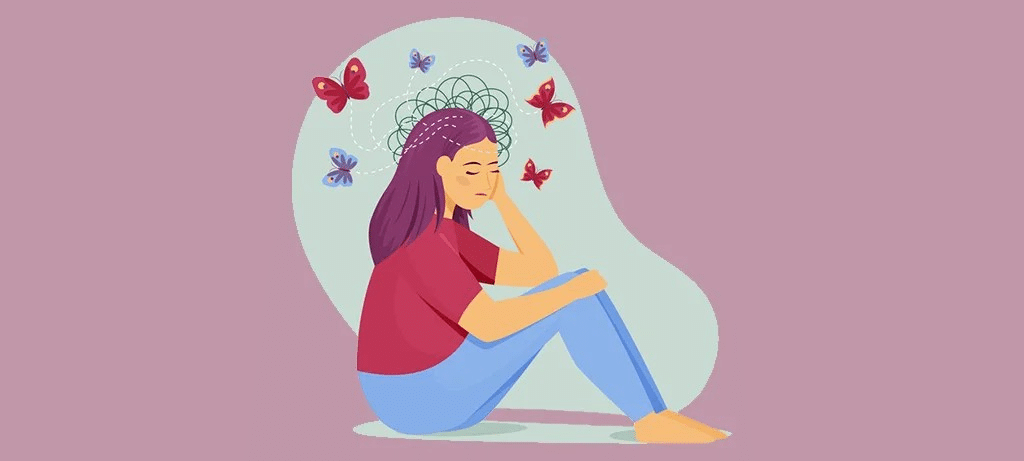Your mental health is just as important as your physical wellbeing. As a matter of fact, you could argue that without stable mental health, your quest for physical perfection will be greatly hindered as you need a sound and stable mind to contemplate a proper training, diet and recovery program.
You also need a healthy mind to stay focused on your fitness goals and endure the rigors of daily training sessions.
So it goes without saying that you need your mind intact if you want to successfully complete a cutting or bulking phase in your fitness and/or bodybuilding endeavors.
However, while the importance of mental health to your fitness goals may be a no-brainer, there is still a need for mental health destigmatization, as this topic is often a difficult one to discuss even amongst more learned and enlightened people.
Indeed breaking mental health stigma is an ongoing concern with many mental health awareness campaigns by advocacy groups doing their bit to educate people on the importance of at least having a conversation on the topic as a first step to addressing mental health challenges head-on.
In this article, we will highlight reasons why the stigma around mental health still persists in today’s world, the impact of the stigma to women’s mental health in particular, and the ways by which society is now destigmatizing mental health.
Women and Mental Health Challenges and Why this Stigma still Exists In Society
Mental health conversations have for a long time been a no-no for most people around the world and for a multiple of reasons. However, the mere fact that many people tend to avoid even mentioning mental health in any discussion relating to their health has led to a lot of apprehension, misconception, and misinformation about common mental health conditions like anxiety and depression over time.
In families with a history of mental health problems there are often feelings of shame with such families being ostracised by a desperately ignorant society.
In many societies women with genuine mental health challenges have to cope with family and friends dismissing their mental health concerns, writing it off as simply the effects of hormonal imbalances, emotional instability, hysteria or any other dismissive explanation they can fathom at the toss of a coin. But this does nothing to help in promoting mental health destigmatization, but rather it tends to further entrench the stigma to the detriment of women with real mental health issues.

It must be said that there are a great number of factors that are responsible for the rise of mental health stigma in society and some of these factors are:
#1. Poor awareness and education
This is perhaps the most telling reason why mental health stigma is rampant in many societies around the world. But awareness and education are also true solutions to making mental health conversations less uncomfortable in society.
#2. Culture, Tradition and Religious Practices
The culture, tradition and religious practices of many societies have made it difficult for mental health issues to be discussed openly without the fear of prejudice or recrimination.
People’s culture, tradition and religious practices cannot be changed, but awareness and education done in the right way with respect for people’s customs can lead to positive changes to how mental health is perceived in society.
#3. The Portrayal of Mental Health by the Media
Mental health is often portrayed in a negative way in many movies. This has the potential of enforcing the misconceptions about mental health in the minds of the general public.
Maybe it’s time the mass media puts more effort as a matter of policy in portraying mental health as something that no one should hide or be ashamed of discussing openly.
The Ways By Which Society Promotes Mental Health Destigmatization
It’s not all gloom and doom for women with mental health problems, as there are growing signs of improvement in the awareness, education, and advocacy towards breaking mental health stigma particularly in many first world societies.
And the way these societies have been able to destigmatize mental health problems is through a dedicated series of campaigns in multiple channels including popular social media platforms, such as; Tiktok, Facebook, X, and Instagram.
These advocacy campaigns on social media often share real life stories told by women that have been able to overcome the stigma attached to mental health issues, as a way of inspiring others to come out and seek help from mental health professionals.
But these advocacy campaigns don’t stop there, they also provide invaluable resources to women seeking solutions to their mental health challenges at little or no cost to them.
Popular social media hashtags like #EndTheStigma and #MentalHealthAwareness helps to push and promote a genuine change in how society views mental health illness.
Another way by which society is bringing about a change in the perception of mental health is through changes in government policy on healthcare in general and mental health in particular. By instituting mental health awareness and education in schools, and by making mental health counseling accessible to all who need it, the stigma around mental health is sure to be less prevalent in the future.
Open discussions with experts in mental health care on talk-shows can help to gradually eradicate the stigma, especially if celebrities with mental health challenges are open to discussing their problems in public with their teeming fans tuned in to learn from their experiences.
It is also worth mentioning that many workplaces have, as a matter of policy, initiated mental health programs aimed at addressing the mental health of their staff. This in itself is a great way to dispel the misconceptions, fear and shame surrounding mental health challenges amongst workers.
Conclusion
Your mental health is very important to your overall well being. So no matter how physically healthy you are, if your head is not right, you are unlikely to get the best out of your training program.
However, mental health destigmatization is one surefire way to ensure that anyone with mental health challenges takes the first step to seeking a solution and that is to feel comfortable enough to talk about their struggles.
Having a conversation with a mental health professional is absolutely necessary for a proper evaluation, diagnosis and resolution of your mental health problems. If you need someone to talk to, you can start today by getting in touch with us for free coaching.


